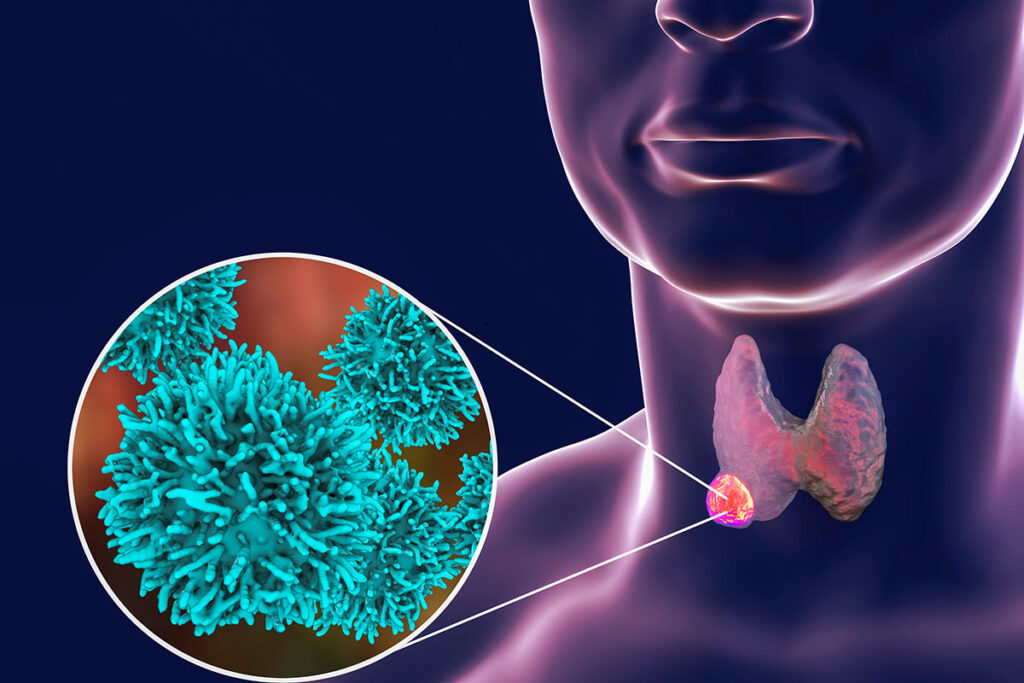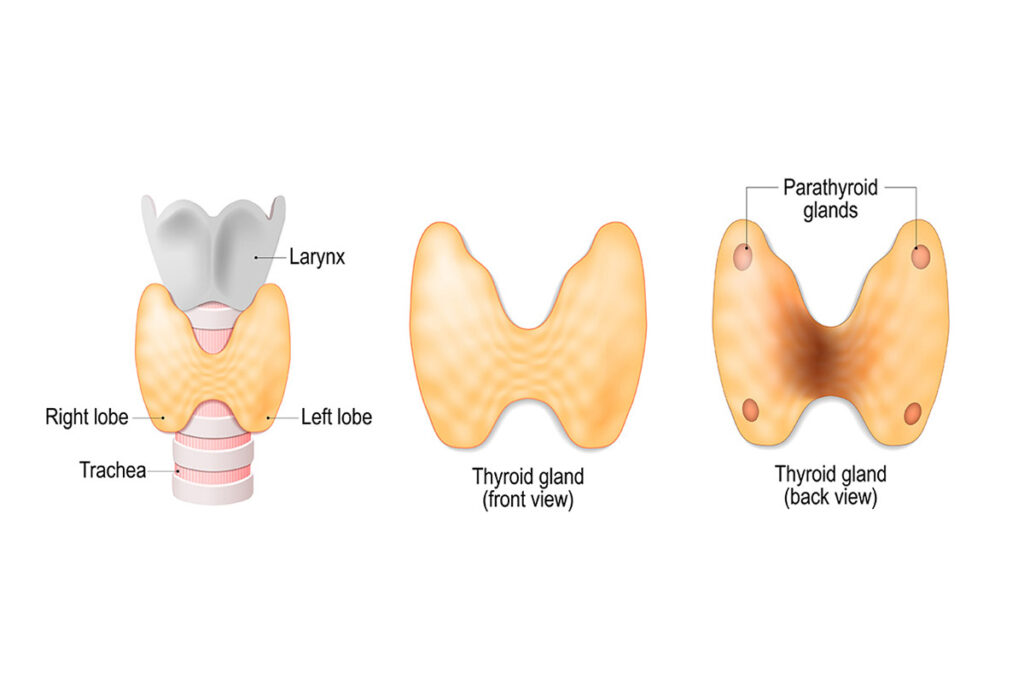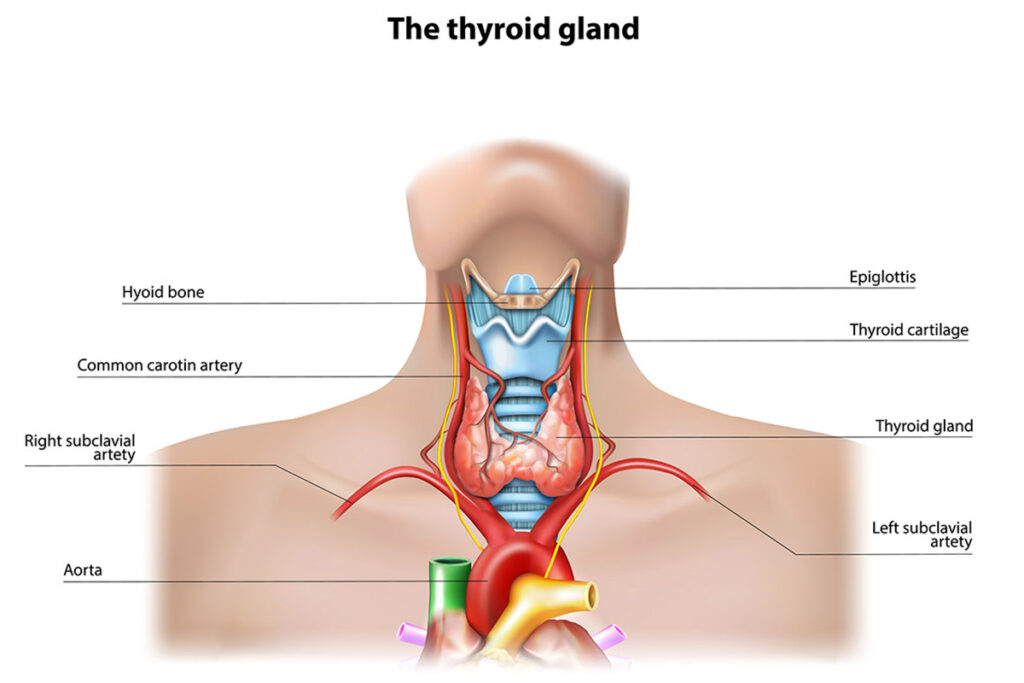Thyroid Surgery
The most common indications for thyroid surgery are thyroid cancer, other tumors that are difficult to discern from thyroid cancer, lumps or goiters causing symptoms, thyroid nodules that are easily seen on the outside of the neck, some nodules that are larger
than 4 cm, and hyperthyroidism that is not well treated by medication or radioactive iodine therapy. Another reason for surgery can include open biopsy or if the thyroid is growing under the sternum (substernal).
Read below to learn more about thyroid surgery, why it may be necessary, and what to expect post-operation.
Types of Thyroid Surgery
Hemithyroidectomy
Surgery can be a hemithyroidectomy. Only one side or lobe of the thyroid is removed. This is usually for unilateral tumors that are not obviously malignant (follicular lesion of undetermined significance), large symptomatic nodules, or visible nodules. Some low risk cancers can be adequately treated with only removing half of the gland containing the tumor. Low risk is determined after the pathologist has fully evaluated the specimen.
Hemithyroidectomy may also be for “toxic nodules,” those that over secrete thyroid hormone. Surgery usually takes 1-2 hours depending on many variables. Risks are listed here. Most patients will go home the same day.
Rarely, someone may need a drain in the neck to prevent fluid from collecting at the surgical site. This is removed in clinic several days after surgery. If cancer is found by pathology, some will need to go back to the operating room for removal of the remaining thyroid. We will check thyroid stimulating hormone 4-6 weeks after surgery to make sure the remaining thyroid lobe is making enough thyroid hormone
Total thyroidectomy
A total thyroidectomy removes the entire thyroid, or most of it. Surgery lasts 1½ to 3 hours. Risks of surgery are listed here. Most patients go home after surgery. Some will stay the night in the hospital if we feel there is a higher risk of low calcium. We will check the blood calcium levels every 6 hours starting the day after surgery. If they are stable then you may go home. You will go on high dose calcium and vitamin D (calcitriol) supplementation to ensure that the calcium does not go too low. This is tapered over several weeks. You will need to be on thyroid hormone pills for the rest of your life. A TSH level is checked after 4-5 weeks to ensure your dosage is appropriate.
Neck dissection
If there is a thyroid cancer with evidence of spread (metastasis) to the lymph nodes in the neck, then patients need a neck dissection. This procedure removes the affected nodes and the nodes at risk. The extent of this surgery is dependent on the number of nodes and the areas of the neck that are affected.
It may only include the nodes in the center of the neck in the immediate vicinity of the thyroid but may need to extend to the lateral necks if pathologic nodes are seen or suspected there. Surgical time and risks are increased. The goal is remove as much cancer from the neck as possible to improve the overall chance that the cancer does not come back.
Completion Thyroidectomy
A completion thyroidectomy is done if one lobe of the gland has been removed in a separate surgery and the remaining lobe has to be removed. This can be for cancer or if the remaining lobe starts to cause symptoms due to enlargement or nodules. The risks of a completion thyroidectomy are the same as those for a total thyroidectomy.
Post Operative Overview
Post operatively, people will be on pain medication. Fortunately, thyroidectomy is well tolerated. The day of surgery, people may feel groggy, the throat is sore from the breathing tube placed for surgery, and the neck may be stiff. The pain may peak on post op day 1 but quickly subsides over the next several days. Some may experience pain for longer and we can accommodate for this. It is best to request 1 week from work.
Please keep the following in mind as you recover:
- Patients should not lift more than 15 pounds for 7 days; after that there are really no restrictions.
- One should not drive or drink alcohol while taking pain medications.
- People should be up and around the house as much as possible to keep blood pumping in the legs and to re-expand the lungs after surgery. You will notice that your stamina may be temporarily diminished for at least 2-3 weeks.

Request an Appointment
Same and next day appointments available



